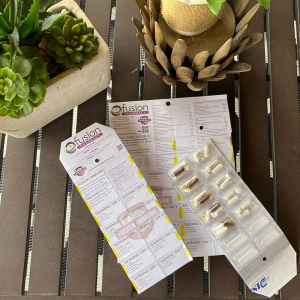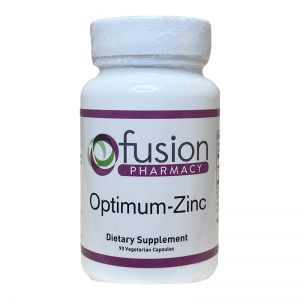Hair Loss...Holiday Stress, and a Vitamin D Deficiency
 During the winter months, you may notice an increase in hair loss. Yes, the stress of the holidays can certainly play a role in this, but another overlooked factor may be seasonal habits. Many people who thrive on summer sunshine spend less time outdoors during the colder months, reducing their natural vitamin D production. Hair loss can be caused by many factors—stress, genetics, age, hormone fluctuations such as menopause or thyroid disorders, other medical conditions, and even medications. But it can also be linked to nutritional deficiencies, especially low levels of vitamin D.
During the winter months, you may notice an increase in hair loss. Yes, the stress of the holidays can certainly play a role in this, but another overlooked factor may be seasonal habits. Many people who thrive on summer sunshine spend less time outdoors during the colder months, reducing their natural vitamin D production. Hair loss can be caused by many factors—stress, genetics, age, hormone fluctuations such as menopause or thyroid disorders, other medical conditions, and even medications. But it can also be linked to nutritional deficiencies, especially low levels of vitamin D.
The Role of Vitamin D in the Body
Vitamin D is often called the “sunshine vitamin” because our skin produces it when exposed to sunlight. It helps regulate calcium absorption, bone health, immune system function, and inflammation. But research also shows that vitamin D plays an important role in the growth cycle of hair follicles. Hair follicles contain vitamin D receptors that influence the production of new hair shafts. These receptors are especially important during the anagen phase, or growth phase, of the hair cycle. Without adequate vitamin D, follicles may struggle to move through their normal growth and shedding phases, leading to thinning or excessive hair loss.
How Vitamin D Deficiency Contributes to Hair Loss
Low vitamin D levels have been linked to several types of hair loss, including alopecia areata, an autoimmune condition in which the body’s immune system attacks hair follicles. Studies suggest that people with alopecia areata often have lower vitamin D levels than those without the condition. Additionally, chronic deficiency can contribute to more general thinning and shedding, often referred to as telogen effluvium. Research in dermatology and nutrition suggests that vitamin D deficiency can disrupt follicle cycling and impair keratinocyte function. Keratinocytes are the cells in the outer layer of skin that help form the structure of hair, nails, and skin.
Signs You May Have Low Vitamin D
Aside from hair loss, vitamin D deficiency may cause:
•Fatigue and low energy
•Bone or muscle pain
•Frequent illness due to weakened immunity
•Mood changes, including depression
•Slow wound healing
Because these symptoms are often subtle, many people don’t realize they are deficient without a blood test.
What Is Considered “Normal” Hair Loss
Don’t panic if you notice some hair in your brush or shower. The American Academy of Dermatology explains that shedding fifty to one hundred hairs a day is normal, given that we have more than 100,000 hair follicles. This daily shedding is simply part of the natural hair growth cycle and not usually a sign of hair loss. However, if you notice significant thinning or increased fragility, it may be worth checking your vitamin D levels.
Ways to Increase Vitamin D Levels
If deficiency is contributing to hair loss, restoring healthy vitamin D levels may support better follicle function. Options include:
•Sunlight exposure: Spending ten to twenty minutes in the sun a few times per week helps your body naturally produce vitamin D. However, factors such as sunscreen use and skin tone can affect how much is absorbed. As a pharmacist, I’m always reviewing studies, and one from the Royal Osteoporosis Society in Bath, England, offers a simple way to know if it’s the right time of day for vitamin D production: check your shadow. If your shadow is shorter than your height, your body can produce vitamin D. If it’s longer than your height, the sun is too low in the sky for effective production.
•Dietary sources: Fatty fish (salmon, tuna, mackerel), fortified dairy or plant-based milks, egg yolks, and mushrooms are rich in vitamin D.
•Supplements: Vitamin D supplements are widely available and especially helpful for those with very low levels or limited sun exposure. A healthcare provider can recommend the right dosage. I suggest choosing vitamin D3 (cholecalciferol) over D2 because it is more bioactive and remains in the body longer. By contrast, vitamin D2 (ergocalciferol) is plant derived, less potent, and has a shorter duration of action.
While vitamin D deficiency may not be the sole cause of hair loss, it is a contributing factor worth considering—particularly during the darker winter months when sunlight is scarce and when you are under the stress of the holidays. Maintaining adequate vitamin D levels supports not only hair growth but also overall health. If you’re experiencing unexplained hair thinning, checking your vitamin D status with a healthcare provider could be a simple but powerful step toward restoring both your health and your hair.
RELATED ARTICLES
Ketamine, What Is All the Fuss About?
By Koby Taylor, PharmD If you’ve been paying attention lately, you probably have seen and heard a...
Battling Postpartum – A New Hope
It was November of 2018 when I conducted an initial phone consultation with Maggie, a 28-...
RELATED PRODUCTS
Click any product below for details and to visit our online store.
-

Fusion Immune Kids
$38.84 -

Fusion Immune
$33.98 -

St. George Nano Silver (Ag+) Particle Solutions (16 fl oz)
$30.98 -

St. George Nano Silver (Ag+) Particle Solution (4 fl oz)
$13.98 -

Stress B-Complex
$20.98 -

Triple Action Pro
Price range: $26.98 through $67.98 -

GABA Calm
$39.98 -

Bio-Zyme
$40.98 -

5-HTP 100mg
$23.98 -

L-Glutamine
$26.98 -

L-Tryptophan 500mg
$52.98 -

Omega Max
$54.98 -

D-Hist 120ct
Login to Order -

D-Hist Jr. 60ct
Login to Order -

Optimum-Zinc
$14.98 -

Viracid
Login to Order -

Vitamin D3 5,000 IU
$24.98 -

MegaSporeBiotic™ 60ct
$63.00 -

Crave Control
$59.98 -

Digestive Enzymes with Betaine 90ct
$35.98




